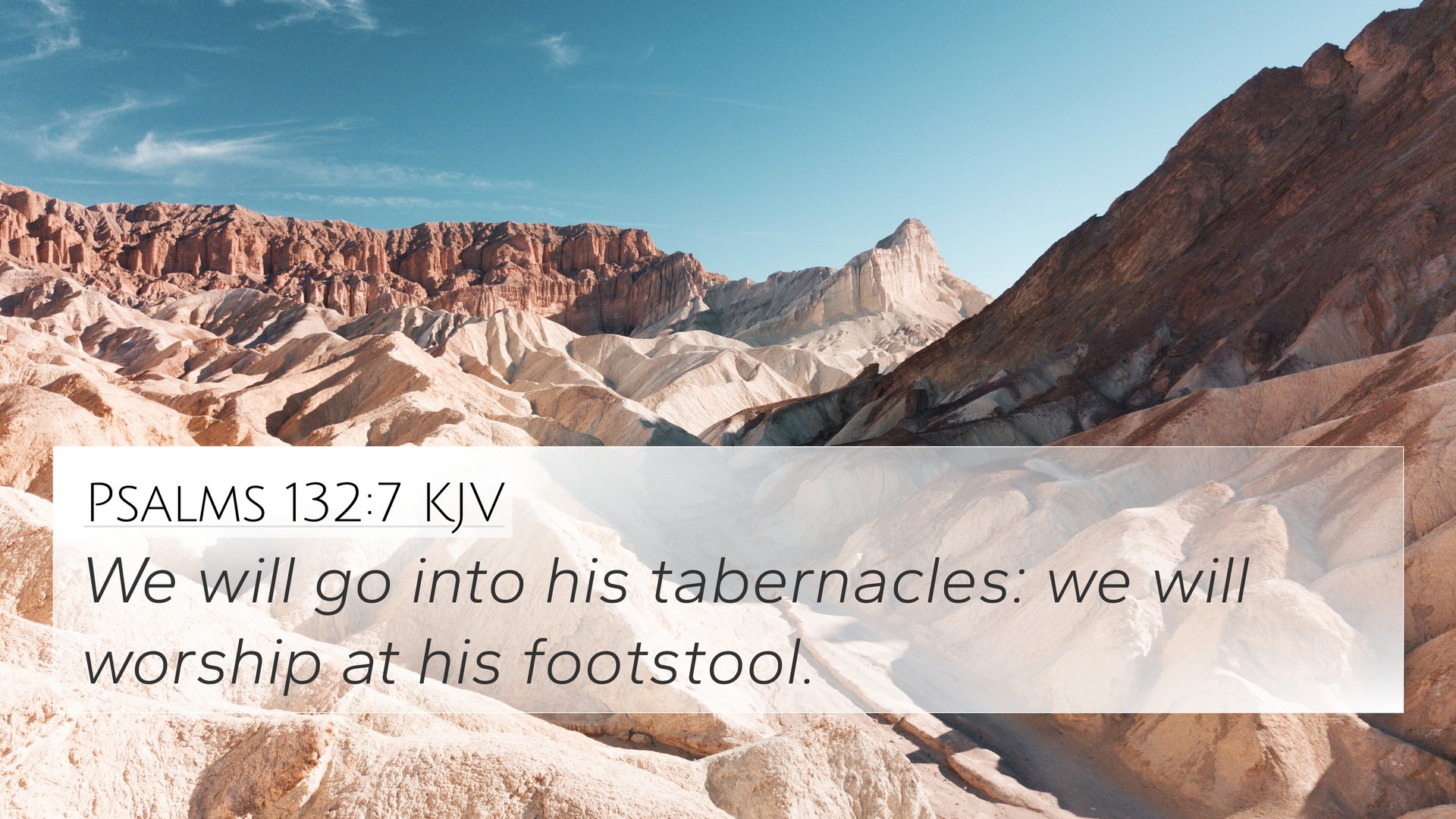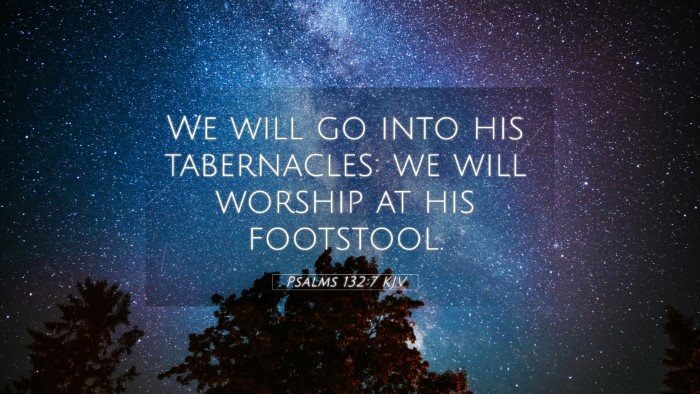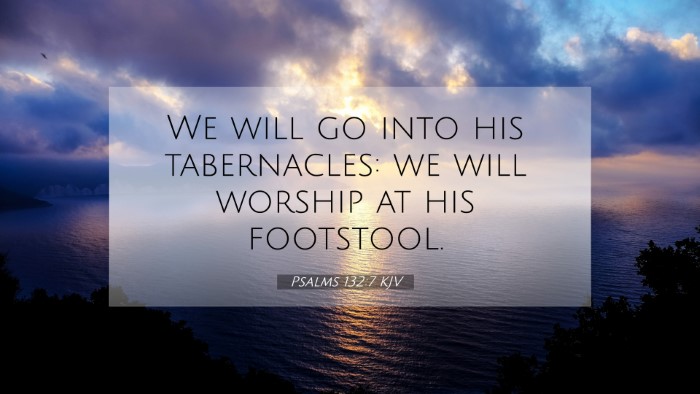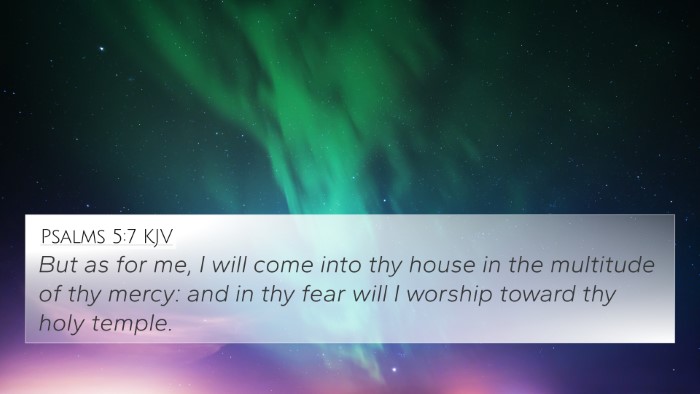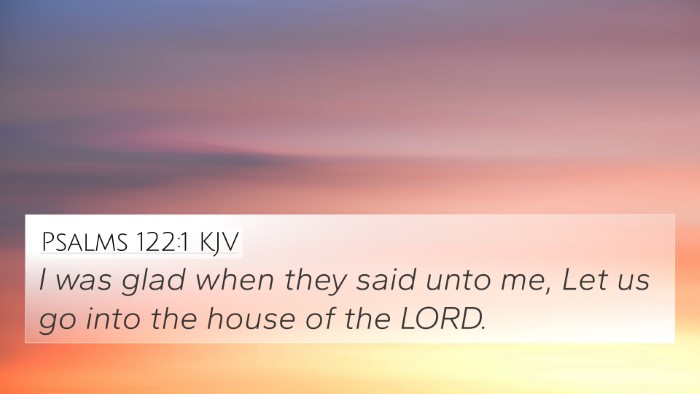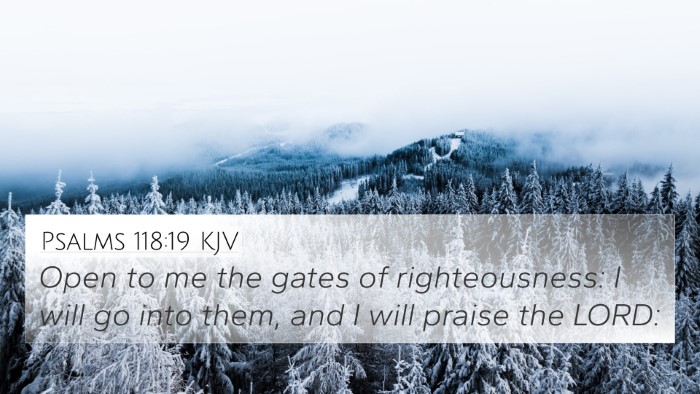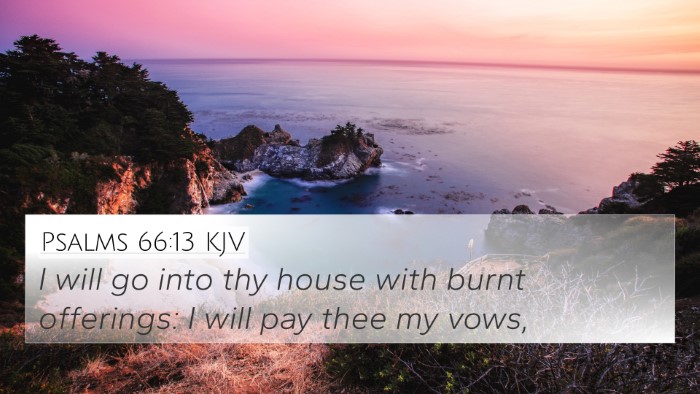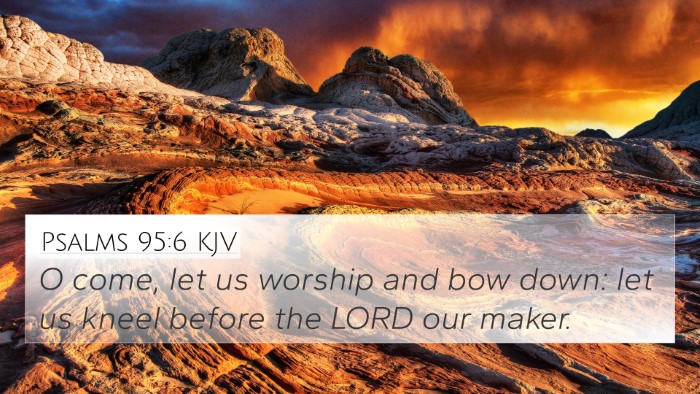Understanding Psalms 132:7
Psalms 132:7 states, "We will go into His tabernacle; we will worship at His footstool." This verse holds profound significance in the context of worship, the dwelling place of God, and the covenant relationship between God and His people.
Summary of Insights
Various public domain commentaries provide insights into this verse:
-
Matthew Henry:
Henry remarks that this verse expresses a willingness and desire to enter into the presence of God, indicating a heart positioned towards worship. It reflects the importance of the temple as a sacred space for communion with God.
-
Albert Barnes:
Barnes emphasizes that the "tabernacle" refers to the dwelling place of God among His people. The verse signifies both a physical and spiritual return to God's presence, highlighting the reverence needed in worship.
-
Adam Clarke:
Clarke provides a view that this act of going into the tabernacle symbolizes a search for divine guidance and shelter. The "footstool" of God implies humility in worship, recognizing His authority and majesty.
Thematic Analysis
This verse can be cross-referenced with several other Bible verses to explore its themes further:
- 1 Chronicles 28:2: Explains the importance of the house of God as a place of worship.
- Hebrews 10:22: Encourages believers to draw near to God in full assurance of faith, reflecting the intimate approach to God's presence.
- Psalm 27:4: Expresses a desire to dwell in the house of the Lord all the days of life, demonstrating the yearning for communion with God.
- Psalm 84:10: Declares the joy of dwelling in God's house, which resonates with the call to worship at His footstool.
- Exodus 25:22: Designates the mercy seat as a place where God meets with His people, reinforcing the concept of His presence.
- Isaiah 66:1: Reminds us of God's supremacy over creation and suggests that His dwelling is beyond mere physical structures, indicating His presence is everywhere.
- Revelation 21:3: Proclaims the ultimate fulfillment of God's presence with His people, echoing the fundamental desire for divine communion.
Connections Between Bible Verses
The connections between this verse and others demonstrate a pattern of God's desire for intimacy with His creation. Below are some illustrative connections:
- Both Psalms 132:7 and John 4:24 emphasize that true worship must be in spirit and truth.
- In Lamentations 3:41, the act of lifting hearts and hands to God aligns with the call to worship at His footstool.
- Comparing this verse with Micah 6:6-8 reveals that God desires not just ritual, but authentic worship characterized by justice and humility.
Bible Verse Cross-References
Here are additional references that relate to Psalms 132:7, providing deeper understanding and thematic richness:
- Exodus 29:43: The presence of God filling the tabernacle reinforces the sanctity of the worship space.
- John 2:19-21: Jesus refers to His body as the temple, pointing to the fulfillment of God's dwelling among humanity.
- 2 Corinthians 6:16: Discusses the believers as the temple of God, emphasizing our call to holiness in connection to worship.
- Psalm 95:6-7: Calls the people to worship and kneel before the Lord, echoing the themes of reverence found in Psalms 132:7.
Understanding Through Cross-Referencing
The practice of cross-referencing bible texts offers a richer understanding of scripture. When considering Psalms 132:7, honoring God's presence through worship can be seen in multiple contexts. Understanding these connections enhances the interpretation of themes such as:
- The role of the temple in both Old and New Testaments.
- The continuous call to worship God from different perspectives.
- The practical implications of worship in daily life as modeled by biblical figures.
Tools for Bible Cross-Referencing
To effectively study and find these connections, various tools are available:
- Bible Concordance: Useful for locating verses based on keywords.
- Bible Cross-Reference Guide: A systematic method for finding related verses.
- Bible Reference Resources: Provide direct links between verses across canonical texts.
Conclusion
Psalms 132:7 encourages believers to enter into communion with God, recognizing the sacredness of worship and His dwelling among us. By examining this verse through cross-referencing and thematic connections, we deepen our understanding of God's desire for relationship, reverence, and worship. As believers engage in this interconnected study of scripture, they are better equipped to grasp the richness of biblical teachings and their implications for spiritual life.
